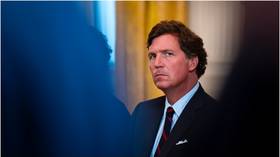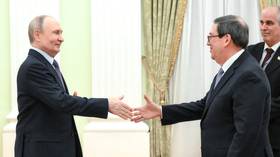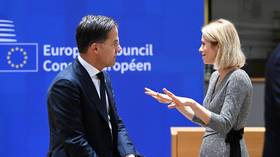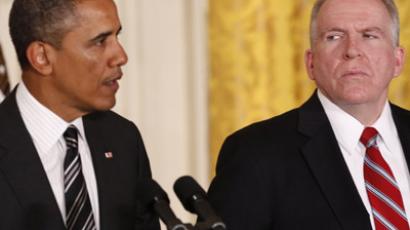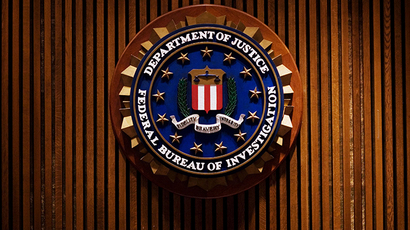Father of worldwide web says internet needs ‘Magna Carta’

On the 25th anniversary of the founding of the worldwide web, the innovator of the system that has revolutionized our world like no other invention is seeking legislation to protect the rights of users.
On March 12, 1989, Tim Berners-Lee first put to paper his concept
for what would eventually become the ‘worldwide web.’ Today, in
these post-Snowden times, the British computer scientist is
fighting to preserve the privacy rights of the system: "We
need a global constitution – a bill of rights" to guarantee
the internet remains an “open neutral” medium, he told
the Guardian.
Based on an initiative called ‘the web we want’, a global effort to pass a
‘Magna Carta’ for web users across the planet, Berners-Lee hopes
the agreement will be also win the endorsement of government
officials and corporations.
"Unless we have an open, neutral internet we can rely on
without worrying about what's happening at the back door, we
can't have open government, good democracy, good healthcare,
connected communities and diversity of culture. It's not naive to
think we can have that, but it is naive to think we can just sit
back and get it."
Berners-Lee hopes to capitalize on the 25th anniversary of the
worldwide web by drawing attention to the infringement of
internet privacy by government agencies and internet companies,
which came to light by US whistleblower Edward Snowden, who last
year exposed the vast lengths that the US National Security
Agency and Britain’s GCHQ had gone to track the communications of
millions of people around the world.
"These issues have crept up on us," Berners-Lee said.
"Our rights are being infringed more and more on every side,
and the danger is that we get used to it. So I want to use the
25th anniversary for us all to do that, to take the web back into
our own hands and define the web we want for the next 25
years."
The single individual who has done more than anybody to truly
globalize the planet believes new social systems must be created
for holding organizations accountable for their intrusive
activities.
“Those social systems will be based on fundamental values - I
have the right to use the web without worrying about being spied
upon. I have the right to connect to your website no matter what
it is, what politics you have, what color and culture you
are,” Berners-Lee said in a separate interview with CNET.
Berners-Lee also advocated – especially following the Snowden
leaks - decoupling the US Department of Commerce from direct
oversight over internet domain names and numbers.
"The removal of the explicit link to the US department of
commerce is long overdue,” he told the British paper.
“The US can't have a global place in the running of something
which is so non-national.”
The internet innovator expressed the concern over what could
happen in the event that countries and organizations attempt to
exert their own control over the internet, something that several
EU countries hinted at following reports that the mobile phone
communications of several leaders were being spied on.
German Chancellor Angela Merkel, for example, who reportedly
discovered that her personal BlackBerry device was being tapped
by the US spy program, advocated last month the creation of a
European-made internet that needn’t traverse the Atlantic Ocean.
"We'll talk about which European suppliers we have that
provide security for the citizens," Merkel told a press
conference, "that they need not cross the Atlantic with their
emails and other things, but we can also build communications
networks within Europe."
The leaked documents also showed that the NSA had monitored
internal Brazilian government communications, up to and including
that of President Dilma Rousseff's office. This led the
government in September to announce it is drafting plans to
bypass the global internet.
There are an estimated 86 million internet users in Brazil.
Glenn Greenwald, the journalist who first broke the story on
Snowden's whistleblowing activities, said this could be just the
start of countries looking for ways to escape the clutches of the
US-regulated internet.
"I think a lot of countries are going to start to look for
ways in which they don't have to be dependent on US
infrastructure," said Greenwald, who previously worked for
the Guardian.
Anupam Chander, director of the California International Law
Center, warned about the risk of so-called ‘data localization’,
whereby governments in the post-Snowden age gain greater control
over the internet in the name of security.
"What we're seeing underneath our radar is the rise of
efforts to prevent data from leaving shore -- it's the export of
data that is now a huge problem," Chander told Bloomberg in
interview. "Much of this predates Snowden but much of the
efforts were revived and reinforced post-Snowden."
At the same time, competition may ultimately suffer due to the
imposition of protective measures, Chander argued.
"Protectionism breeds a sense of security and the thing that
is most useful to ensure the quality of a service is competition
- what you want is healthy competition around the world, and if
you're insulated from foreign competition, your service
suffers."
Meanwhile, according to Berners-Lee, observance of copyright law
should also be included in any future internet constitution.
We…need to revisit a lot of legal structure, copyright law –
the laws that put people in jail which have been largely set up
to protect the movie producers … None of this has been set up to
preserve the day to day discourse between individuals and the day
to day democracy that we need to run the country," he said.
In a final parting shot, asked whether governments and
corporations would emerge victorious in their seeming efforts to
clamp down on the rights of internet users, Berners-Lee gave a
surprisingly Clint Eastwood-type of response to the paper:
"Not until they prize the keyboards from our cold, dead
fingers."


